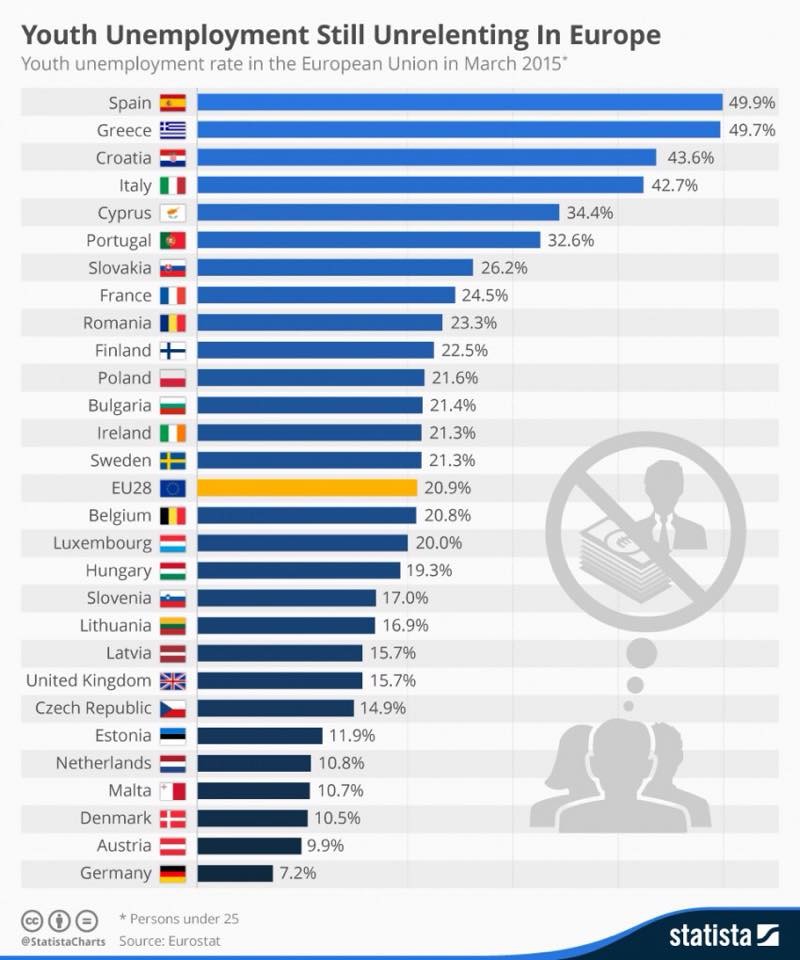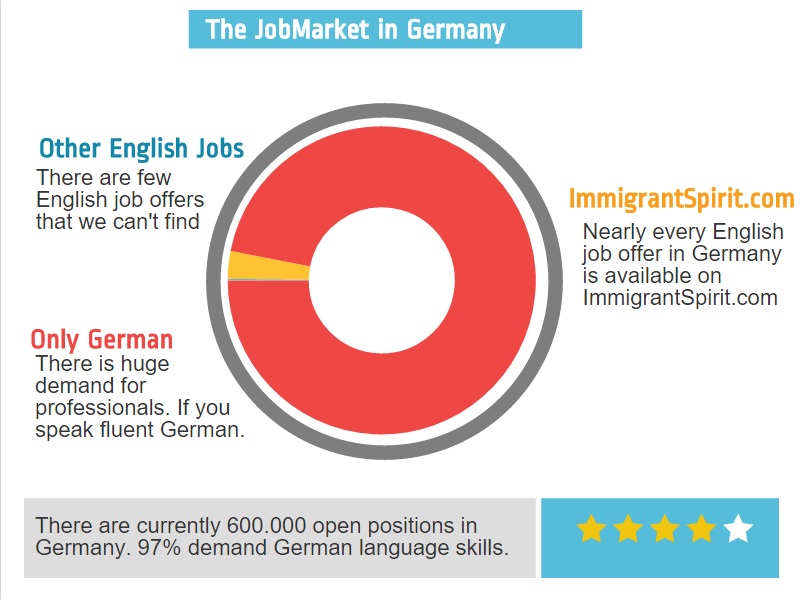There is a huge gap between the life that you are supposed to enjoy, and the reality in Europe. Especially when it comes to your career.
This is what life could be for you: you finish university. There are too few jobs at the moment. But that doesn’t worry you. You made some friends during your Erasmus time and you take on an internship in Stockholm. This leads to your first job in a startup in Berlin. You spend your days working hard and your nights partying harder.
After three years you move to Paris. Your first senior position. You meet someone. You fall in love. Together with your “special someone“, you jump at an opportunity and move to Amsterdam. Dutch law gives you the right to work from home. So you do. Your first child is born.
It would be nice to have grandparents close, so you decide to raise your child back home. By now you have a professional network all over Europe. Your Dutch boss doesn’t care if your home office is down the road or 2,000 km away. You become a freelancer and work for clients across Europe. You work less, earn more and you are independent. You have a good life. Your kids grow up and you decide: it’s time to retire. So you and your spouse pack up your stuff one last time – and spend your retirement on a sunny beach near Lisbon.
 Sounds like a good life, doesn’t it?
Sounds like a good life, doesn’t it?
Here is the current reality: Article 45 of the European Treaty gives you the right to work everywhere in Europe. But that’s pure theory.
You graduate from University in Madrid. Youth unemployment is 50% in Spain. So you move to Germany in order to find work. You apply for a hundred companies and every single time you get the same feedback: “We are sorry – you don’t speak German“. You would be perfectly capable of doing a good job. But no one gives you a chance. I meet you when you are at the airport, heading home. One way ticket. Your head’s down, your shoulders bent under the burden of your defeat. You are bitter and feel hopeless.
Half of young Spaniards and Greeks are without a job. A quarter of French and Italian young professionals have no work. They are the best educated generation ever – but they have no opportunity to transform their knowledge into skills.
At the same time Northern countries desperately need young professionals to replace the huge number of retiring baby boomers. Germany alone will need six million professionals in the next 15 years. At this very moment there are 540,000 open positions. But guess what? Only 3.5% of these jobs are offered in English. It equates to 19,000 English job offers for 1.2 million immigrants per year. The result: you compete with hundreds of candidates even for the simplest jobs in any English speaking company.
At the same time there are roughly 3 million German companies who have trouble attracting applicants. They want to hire foreigners – but they can’t let go of the idea that they’ll find someone who already speaks fluent German. In fact, less than 2% of the world population speaks German. These companies might as well be after a unicorn.
Which brings us to the solution. When there are millions of jobs in Northern Europe and millions of job seekers in the South – bring them together!
 Allow young professionals to start working in English – and learn the local language “on the job”. Not just in Germany. But everywhere in Europe. Let’s allow the best candidates to work in the best companies, learn from the best professionals – not only from those who speak your language – but from everyone available! Two million additional jobs would be created if we could raise “labour mobility“ in Europe to the same level as in the United States, says Martina Dlabajová (ALDE Party) in her recent report for the European Parliament.
Allow young professionals to start working in English – and learn the local language “on the job”. Not just in Germany. But everywhere in Europe. Let’s allow the best candidates to work in the best companies, learn from the best professionals – not only from those who speak your language – but from everyone available! Two million additional jobs would be created if we could raise “labour mobility“ in Europe to the same level as in the United States, says Martina Dlabajová (ALDE Party) in her recent report for the European Parliament.
I work as an international recruiter. The biggest obstacle in filling a position is not finding “talent“. The difficulty lies in that the best candidates are often not willing to relocate for the job available. The professional term for this situation is „mismatch“, and it’s the number one reason for high unemployment rates.*
How do we get there? I believe that Europe can only survive as a federal Union, committed to maximising the freedom of the individual. We need to model our European labour market like we organise smartphones. We have millions of individual apps – but we can still cooperate with all other smartphones. Because we all run the same operating system.
The operating system of Europe, and in fact – the world, is English**. It must become normal that you can start any job in Europe with English – and learn the local language „on the job“.
Even more: we are European citizens!
Why should we accept a limitation of our rights, due to a bureaucrat unwilling to communicate with us in English? English should become the official additional language in every EU member state.
Let me share a dirty little secret with you: There are few objective obstacle for hiring you in English and provide training to learn the local language on the job. There are obstacles in people’s minds only.
There is a company that I have been contacting for eight months now. They are based in a small village in south Germany and need sales professionals for the French market. For eight months they’ve been advertising on a big German job portal. So far they have had zero candidates. Every month I call them. We have lots of French sales professionals – and we could fill this position in a week. But every time we get rejected.
They would rather try something that doesn’t work for the ninth time, then change their search profile or strategy. Why? Because there is a certain type of people who generally become HR managers. HR used to be a very stable profession. Nothing changed. Therefore it attracted people whose number one wish in life was, arguably, “security”.

Guess what their number one question is, when they hire: “Can I be blamed for this?” If you are a “foreigner” and you don’t speak the language, then that’s a “risk”. They don’t take risk. Even though the old ways are unsuccessful, they can always say “But that’s how we always did it”. You will never change the mindset of this type of people. You can only fire them (OK with me!) or you change their perspective of what is “normal”.
If English becomes the official additional language across Europe and you have a legal right to apply in English, then this will become the “new normal”. There will be an uproar at first – but then everyone will get used to it. And you will finally be evaluated according to your skills and your motivation – and not according to your language.
You would finally be able to take any job, anywhere. I wish you success.
*On a side note: even the success of the Euro depends on high labour mobility, says the „Economist“. Weaker markets can recover, if they are able to send „surplus“ labour to a stronger market, until they reach a new equilibrium.
This article appeared first on “One1Europe“. Copyright Chris Pyak.
Have you made the same experience?
You are well educated, you have professional experience and most important: You have drive and ambition. You want to make a contribution and build a good career.
But German employers don't value your talent. You apply for job after job. You spent hours editing your CV and cover letter to fit perfectly. And then: You don't even get an answer.
There is a way forward! Chris Pyak and the rest of us at Immigrant Spirit GmbH: We want you to succeed.



Comments are closed.